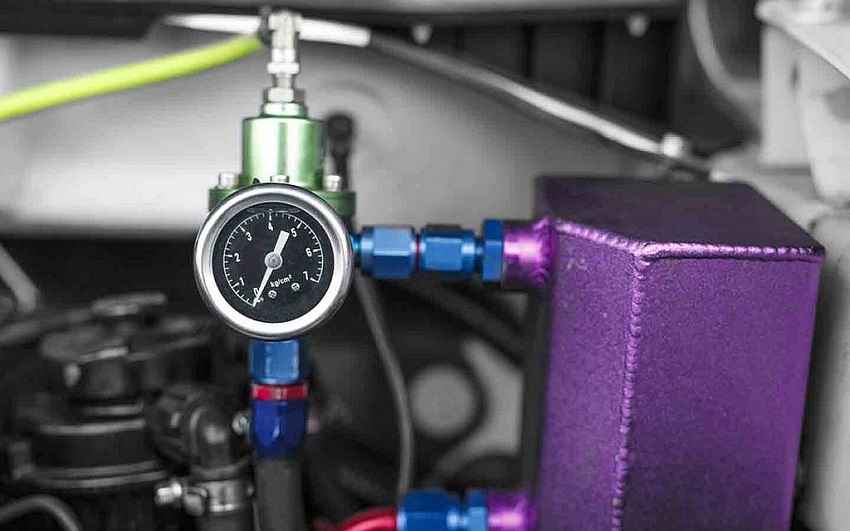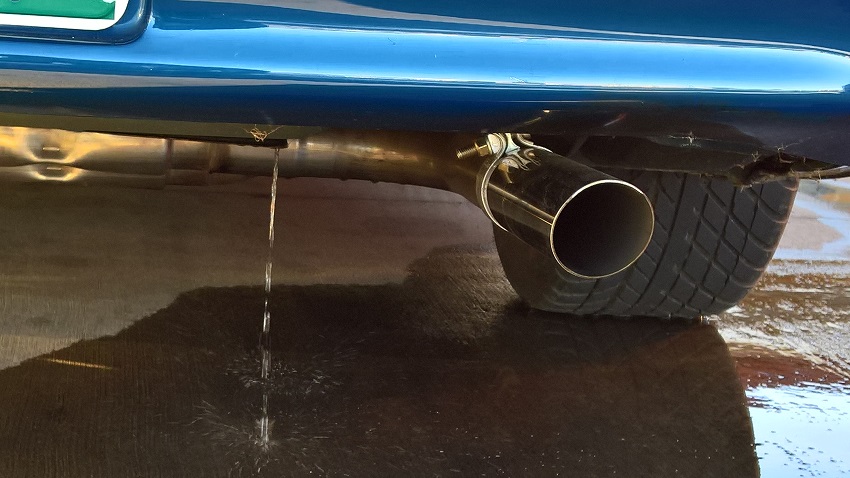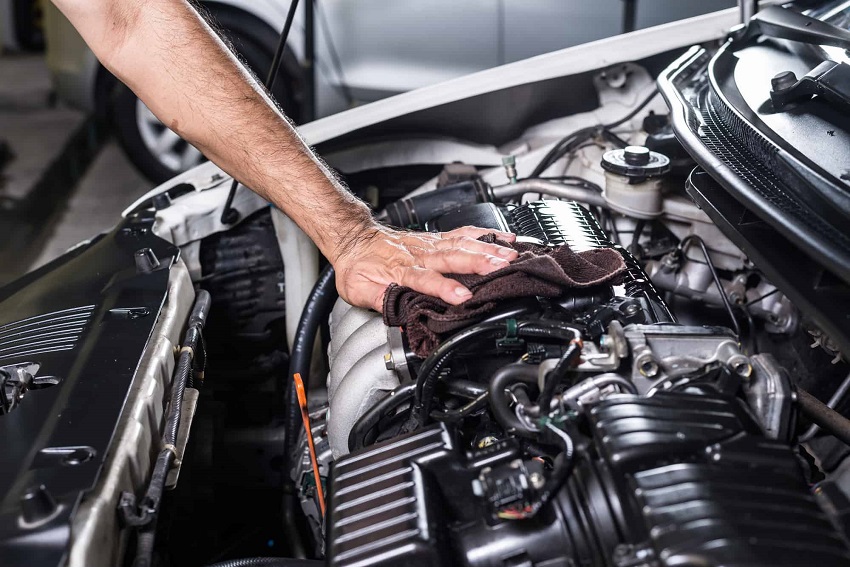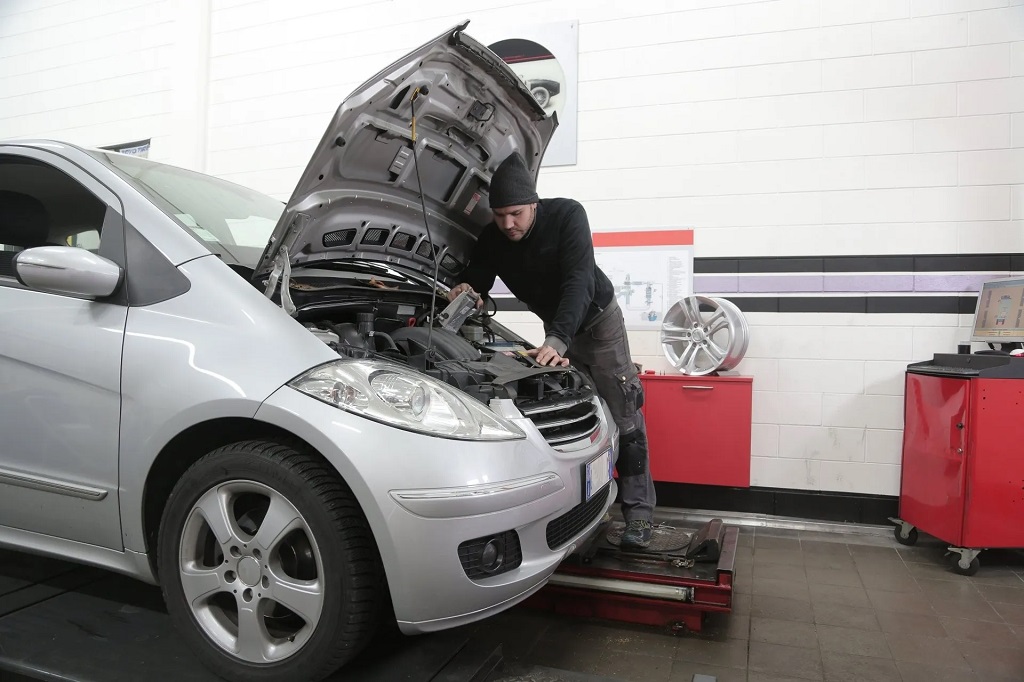If you’re experiencing issues with your vehicle’s fuel system, one possible culprit could be a faulty fuel pressure regulator. This crucial component plays a significant role in maintaining the correct fuel pressure within the system, ensuring that your engine receives the appropriate amount of fuel for optimal performance. In this article, we will explore the signs of a malfunctioning fuel pressure regulator and what you can do to diagnose and resolve the issue. This article is provided by tenkaichiban.com
Understanding the Fuel Pressure Regulator
Before diving into the symptoms, let’s briefly understand the fuel pressure regulator’s function. The fuel pressure regulator is responsible for regulating the fuel pressure coming from the fuel pump. It ensures that the pressure remains constant, allowing the engine to receive the right amount of fuel based on the driving conditions.
Drop in Fuel Efficiency
One of the first indicators of a faulty fuel pressure regulator is a sudden drop in your vehicle’s fuel efficiency. If you find yourself visiting the gas station more frequently or notice a significant decrease in the number of miles per gallon, it could be a sign that the fuel pressure regulator is failing. Insufficient fuel pressure can lead to poor fuel atomization, resulting in reduced engine efficiency. However, if you’re experiencing problems with a stuck fuel pressure regulator, you might want to discover how to unstick a fuel pressure regulator for optimal performance.
Engine Misfires
A malfunctioning fuel pressure regulator can cause engine misfires, which occur when the air-fuel mixture ignites at the wrong time or fails to ignite altogether. Misfires can lead to rough idling, noticeable vibrations, and a decrease in overall engine performance. Ignoring this issue may cause damage to the engine in the long run.
Black Smoke from Exhaust
Another telltale sign of a problematic fuel pressure regulator is the presence of black smoke coming from the vehicle’s exhaust. This occurs due to an overly rich fuel mixture, indicating that too much fuel is entering the engine compared to the amount of air. Along with black smoke, you may also notice a strong fuel odor from the exhaust.
Trouble Starting the Engine
If you’re having trouble starting your car, the fuel pressure regulator could be to blame. A faulty regulator may not provide the engine with the right amount of fuel during ignition, leading to extended cranking or the engine not starting at all.
Check Engine Light
The check engine light (CEL) can illuminate for various reasons, and a malfunctioning fuel pressure regulator is one of them. Modern vehicles are equipped with onboard diagnostics (OBD) systems that monitor the vehicle’s components. When the OBD system detects irregularities in the fuel system, it triggers the check engine light.
Fuel Leakage
A leaking fuel pressure regulator is a serious concern as it can lead to fuel leakage, which is hazardous and can increase the risk of a fire. If you notice any fuel odor or detect fuel leaks near the fuel rail or under the vehicle, it’s essential to address the issue immediately and avoid driving the car until it’s fixed.
Poor Acceleration
A failing fuel pressure regulator can result in poor acceleration and sluggishness while driving. If you press the accelerator pedal and notice a delay in the engine’s response, it could indicate an issue with the fuel pressure regulation.
Reduced Engine Performance
As the fuel pressure decreases, the engine may struggle to perform optimally. You might notice a lack of power during acceleration or find it challenging to maintain a consistent speed. Addressing the fuel pressure regulator problem can restore your vehicle’s performance.
Increased Emissions
A malfunctioning fuel pressure regulator can cause an increase in emissions, which is harmful to the environment. During emissions testing, your vehicle may fail to meet the required standards if the fuel system is not functioning correctly.
Difficulty Idling
A faulty fuel pressure regulator can also affect the vehicle’s idle performance. You might experience rough idling, stalling, or the engine running too high or too low when at a stop.
Engine Knocking
Insufficient fuel pressure can lead to engine knocking or pinging. This noise occurs when the air-fuel mixture detonates prematurely in the engine cylinders. Ignoring engine knocking can result in severe engine damage.
Reduced Engine Lifespan
A consistent lack of proper fuel pressure can lead to long-term engine damage. The engine components may be subjected to unnecessary strain, leading to a shortened lifespan for the entire engine.
Checking and Diagnosing the Issue
If you suspect a faulty fuel pressure regulator, it’s essential to have the vehicle inspected by a qualified mechanic. They can use specialized tools to measure the fuel pressure and diagnose the problem accurately.
In conclusion, the fuel pressure regulator plays a crucial role in maintaining the correct fuel pressure within the vehicle’s fuel system. If you experience any of the symptoms mentioned above, it’s essential to address the issue promptly to avoid further damage to your engine and ensure optimal vehicle performance.
FAQs
Q: Can I drive my car with a faulty fuel pressure regulator?
A: It’s not recommended to drive with a faulty fuel pressure regulator as it can lead to poor engine performance and potential hazards.
Q: Can I replace the fuel pressure regulator myself?
A: If you have sufficient automotive knowledge and experience, you may be able to replace the fuel pressure regulator. However, it’s best to consult a professional mechanic to ensure proper installation.
Q: How often should I replace the fuel pressure regulator?
A: The fuel pressure regulator’s lifespan can vary based on vehicle make and model. Refer to your car’s maintenance schedule or consult a mechanic for guidance.
Q: Can a clogged fuel filter mimic the symptoms of a faulty fuel pressure regulator?
A: Yes, a clogged fuel filter can cause similar symptoms to a faulty fuel pressure regulator. It’s essential to have a proper diagnosis to determine the exact issue.
Q: Is a failing fuel pressure regulator expensive to repair?
A: The cost of repair or replacement can vary depending on the vehicle’s make and the extent of the damage. It’s best to get a quote from a trusted mechanic.






